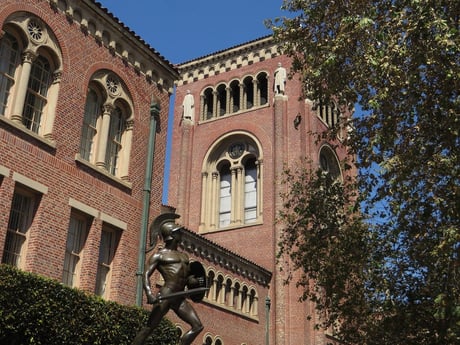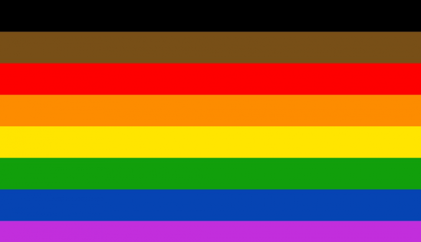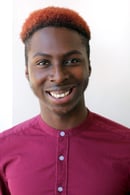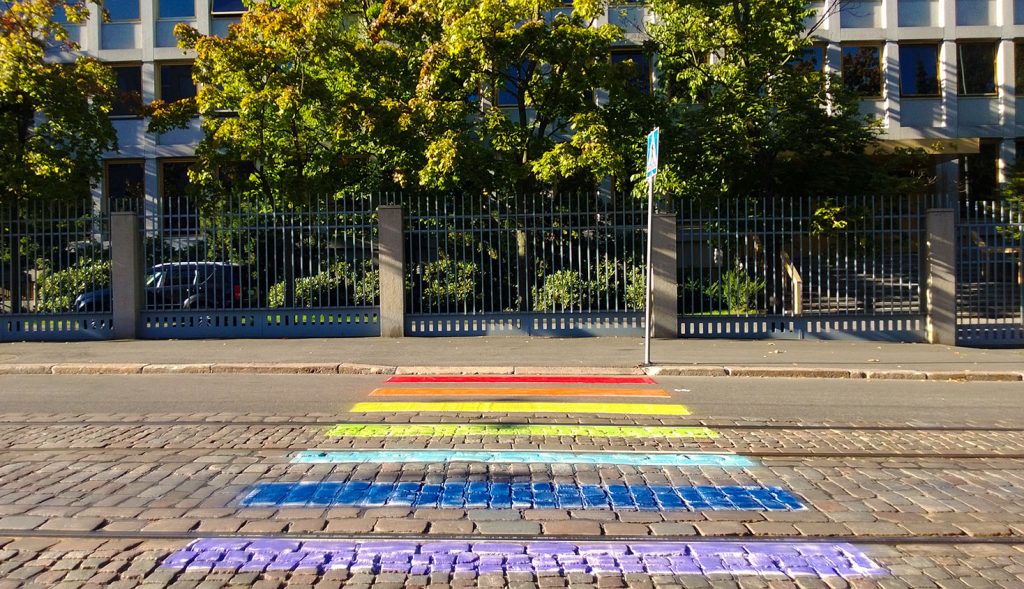Last semester, I received the honor of being named a 2017-2018 GLAAD Campus Ambassador. In this role, I am afforded the opportunity to work with GLAAD to establish effective media campaigning and programming to further acceptance for LGBTQ+ individuals. To kickstart this, the ambassadors were invited to a summit to better acquaint ourselves with one another and the organization. It was wonderful. I met diverse queer people from all walks of life. Even better, I made a close group of friends in the two days we were there.
On the final night, we all opened up and shared our lives as they are currently and how they had been. Stories involved topics such as unhealthy relationships, safe and unsafe sex practices, STD scares, family dilemmas, coming out, and more. Soon the conversation moved toward queer activism, especially focused on our respective campuses. The other ambassadors had done amazing things like bringing trans speakers to their schools during Trans Awareness Week or hosting drag shows to play with misconceptions of gender. Someone even held a talk on the female orgasm. They were powerhouses, seemingly doing something different every week. Then the conversation of campus activism moved to me. “What have you done Jules?”

I admitted - in a moment of inspirational vulnerability - I haven’t done much in the way of activism on my campus. I’ve hosted viewings and discussions of queer films and planned a donation drive for the LA LGBT Homeless Shelter, but that’s it. I don’t want to imply that those things don’t matter or that they had no effect, because that would simply be untrue. However, I don’t think I had the ferocity for activism that was shared with my GLAAD counterparts. But I did when I was younger, before university.
In sharing with my peers, I realized that I kind of...forgot that I was queer once I came to Los Angeles for school. Well, obviously I didn’t forget, but it was no longer in the forefront of my mind in the way it had been before. While I won’t pretend California is the rainbow-colored haven that it’s stereotyped to be, there is some truth to it. This is even more true at a “liberal” campus such as USC. When I introduce myself to a new person here, I do not worry about outing myself or being outed the way I did before coming here. I do, however, worry about their perception of my blackness.
Clearly, I’ve always been black so it’s not something I brought with me to California from Louisiana. I’m not Rachel Dolezal. Back home though, I was rarely the only black person in any given environment. But here at school...I’m literally the only black person in the class I’m sitting in as I type this. This racializing of my identity has reached into queer spaces as well. For example, using apps like Grindr has increasingly made me aware of the ways my blackness affects perceptions of me. It’s not rare to see “no blacks” or “BBC only” on profiles. However, not all queer spaces are resigned to apps. Though I am the president of a queer student org, last night’s meeting was the first one I can recall that I wasn’t the only black person in the room. This reality is something that permeates my thoughts. I mean, similarly, when you’re the only outwardly LGBTQ+ person in the room, you’re often hyper-aware of the identity.

My peers shared similar sentiments. We discussed the ways in which different moments in our lives pulled different identities to the forefronts of our minds. The women mentioned how interviewing for certain jobs highlighted their gender identity. Other people mentioned how religion impacts the way they perceive themselves depending on where they are in the world. It ended up being a conversation around this sort of game we play with ourselves. We walk into a room or approach a group of people and then subconsciously decide who we are. Am I queer right now? Or am I black? Though I’m both at all times, it doesn’t always feel that way. And that’s not particularly fair.
I think that for many of us with ostracized intersectional identities, we end up being forced to be hyper aware of one or another depending on the situation. Thus, even when we’re surrounded by a “family” based on one identity, we’re still outsiders. It takes away from our experiences at people. Because at the end of the day, we aren’t identities. We are individuals. Though I may be black and queer, I am completely unique from every other black, queer person out there. I should be able to revel in that. We should all be able to fully embrace every facet of ourselves regardless of where we are. The goal of activism is to free people, not identities, from societal restraints. And that must never be lost.

This post was written by HSBC Point Scholar Jules Turner.
Jules is studying Biomedical Engineering at the University of Southern California. In his senior year of high school, he started his area’s very first gay-straight alliance. He is dedicated to using his experiences to help others have a more peaceful process of self-acceptance. Read more about Jules here.

